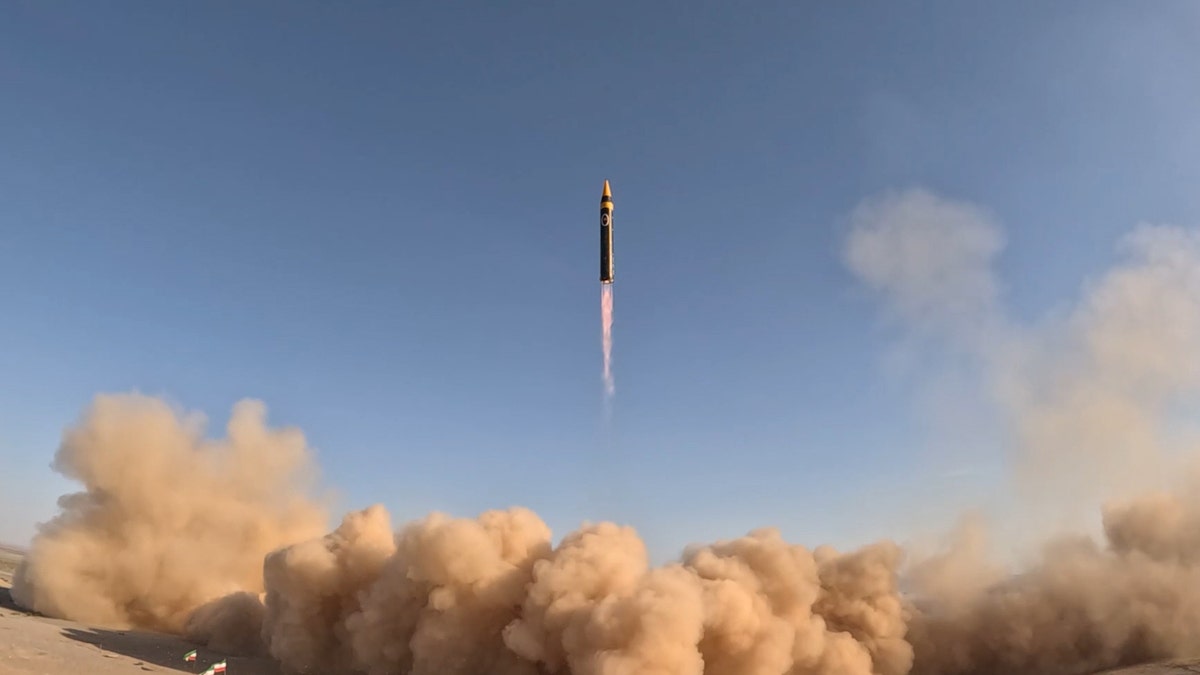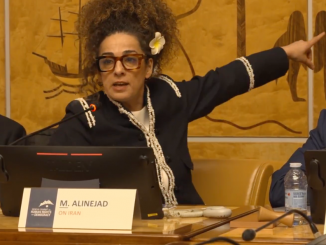
Iran’s supreme leader, Ayatollah Ali Khamenei, views Iranian nuclear achievements on June 11. (Office of the Iranian Supreme Leader/WANA/Reuters)
| Published April 20, 2025
The United States and Iran have initiated a new round of indirect nuclear negotiations in Rome, aiming to revive a framework reminiscent of the 2015 Joint Comprehensive Plan of Action (JCPOA). Despite the renewed diplomatic efforts, significant skepticism persists among U.S. lawmakers and international allies, fueled by Iran’s history of nuclear non-compliance and the complex geopolitical landscape.
Progress in Rome
The talks, mediated by Omani officials, have led to an agreement to commence expert-level discussions to design a potential nuclear deal framework. Iranian Foreign Minister Abbas Araqchi described the discussions as constructive, with plans for expert talks to begin in Oman the following week. The initiative comes in response to escalating tensions and former President Donald Trump’s renewed threats of military action unless a new agreement is reached to prevent Iran from acquiring nuclear weapons.
Iran’s Proposal and U.S. Response
Iran has offered to halt uranium enrichment at 20%, aligning with the cap set in the 2015 JCPOA. However, concerns remain as Iran has previously exceeded these limits, enriching uranium to levels nearing weapons-grade. The U.S. is considering a softened proposal that would allow Iran to retain a significant portion of its enrichment capabilities under strict limitations.
Domestic and International Skepticism
In the United States, bipartisan skepticism has emerged regarding the potential deal. Lawmakers express concerns over Iran’s transparency and the effectiveness of proposed restrictions. Critics argue that the deal may allow Iran to maintain its nuclear infrastructure, potentially enabling a rapid escalation to weapons-grade enrichment if the agreement collapses.

Iran’s medium-range ballistic missile Hayber after a launch during a promotional program organized with the participation of high-ranking military officials in Tehran, Iran, May 7, 2023. (Iranian Defense Ministry/Hanodut/Anadolu Agency via Getty Images)
Here’s a detailed Implications section for your article on the Iran-U.S. nuclear talks in Rome:
🧠 Implications: High Stakes for Global Security and U.S. Foreign Policy
The renewed nuclear negotiations between the United States and Iran carry significant geopolitical implications—stretching far beyond the conference rooms of Rome.
🔹 Global Security at a Crossroads
Iran’s track record of concealing nuclear activities and breaching past agreements has eroded trust. If Tehran is allowed to maintain enrichment capabilities—even under monitoring—it could pave the way for rapid weaponization should the deal collapse. This raises red flags for nations like Israel, Saudi Arabia, and even European allies, who fear a nuclear arms race in the Middle East.
🔹 U.S. Political Fallout
Domestically, the Biden administration risks backlash from both sides of the aisle. Conservatives argue that any deal short of full denuclearization rewards deception and weakens American credibility. Meanwhile, moderates and foreign policy hawks worry that rushed diplomacy could undermine global deterrence efforts, especially with escalating tensions involving China and Russia.
🔹 Reputation and Leverage
If the U.S. concedes too much, critics warn it may send a message that hostile regimes can outlast sanctions and emerge with better deals. Conversely, walking away without an agreement could heighten tensions, prompting Iran to accelerate its nuclear program—and possibly triggering Israeli military action.
🔹 Impact on Iranian People
While the regime may stand to gain from sanctions relief, the Iranian people remain caught in the middle. Many dissidents view any agreement that preserves the current regime’s power as a betrayal of their fight for freedom. Crown Prince Reza Pahlavi and opposition voices have urged the West to tie any deal to human rights reforms and democratic change.
🧭 Overall Takeaway
As the U.S. and Iran edge toward a possible revival of the nuclear deal, the world watches with cautious anticipation—and justified skepticism. While diplomacy remains a critical tool for preventing conflict, the stakes are higher than ever. Iran’s long history of nuclear deception, regional aggression, and domestic repression casts a long shadow over the negotiations.
For many, especially among U.S. conservatives and Middle Eastern allies, any deal that leaves Iran’s nuclear infrastructure intact is not a diplomatic victory, but a strategic risk. The question remains: will this agreement truly curb Iran’s nuclear ambitions, or will it merely delay an inevitable crisis?
In Rome, a fragile window has opened. Whether it leads to peace, provocation, or a repeat of past failures depends on the strength, clarity, and courage of the decisions made in the coming weeks.
SOURCES: FOX NEWS – Iran’s long trail of deception fuels skepticism over new nuclear deal as talks continue
THE TIMES OF ISRAEL – Iran offered US a nuclear agreement with same enrichment cap as 2015 deal — report
REUTERS – Iran, US task experts with framework for a nuclear deal after ‘progress’ in talks
CNN – US and Iran express optimism following second round of nuclear talks





Be the first to comment